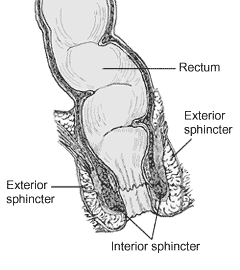**Group 1: Defecation Process**
– Defecation is the process of eliminating waste material known as feces from the digestive tract via the anus or cloaca.
– Humans expel feces with varying frequency, from a few times daily to a few times weekly.
– Waves of muscular contraction in the colon move fecal matter towards the rectum.
– Undigested food may be expelled within feces, a process called egestion.
– Medical conditions associated with defecation include diarrhea and constipation, which can carry diseases like E. coli.
**Group 2: Physiology of Defecation**
– The rectum stores fecal waste before excretion.
– Stretch receptors in the rectal walls stimulate the desire to defecate.
– The urge to defecate involves rectal muscle contraction and relaxation of sphincters.
– Pressure increase in the rectum allows fecal matter to enter the anal canal.
– Peristaltic waves push feces out of the rectum.
**Group 3: Control and Posture**
– The external anal sphincter is under voluntary control.
– Infants defecate by reflex action, while adults have voluntary control.
– Loss of control can be caused by various factors like physical injury or childbirth.
– Involuntary defecation can occur due to fear or inability to control bowel movements.
– Posture can influence the ease and efficiency of defecation, with squat toilets being common in many cultures.
**Group 4: Bowel Disorders and Diseases**
– Regular bowel movements are crucial for digestive tract health.
– Constipation occurs when fecal matter hardens due to delayed defecation.
– Diarrhea can result from fast defecation before excess liquid absorption.
– Inflammatory bowel diseases like ulcerative colitis and Crohn’s disease impact bowel function significantly.
– Bowel disorders can affect quality of life and daily activities, with factors like food intolerance and low fiber diet contributing to functional bowel disorders.
**Group 5: Medical Conditions and Society**
– Open defecation is the practice of defecating outside due to lack of toilet access or cultural reasons.
– Inflammatory bowel diseases like ulcerative colitis and Crohn’s disease require different medical treatments.
– Ending open defecation is a goal under Sustainable Development Goal Number 6.
– Anal cleansing after defecation is practiced using water or toilet paper in various cultures.
– Medical conditions such as irritable bowel syndrome and bowel obstruction require prompt evaluation and management for optimal outcomes.
Defecation (or defaecation) follows digestion, and is a necessary process by which organisms eliminate a solid, semisolid, or liquid waste material known as feces from the digestive tract via the anus or cloaca. The act has a variety of names ranging from the common, like pooping or crapping, to the technical, e.g. bowel movement, to the obscene (shitting), to the euphemistic ("going for a number two", "dropping a deuce" or "taking a dump"), to the juvenile ("making doo-doo"). The topic, usually avoided in polite company, can become the basis for some potty humor.

Humans expel feces with a frequency varying from a few times daily to a few times weekly. Waves of muscular contraction (known as peristalsis) in the walls of the colon move fecal matter through the digestive tract towards the rectum. Undigested food may also be expelled within the feces, in a process called egestion. When birds defecate, they also expel urine and urates in the same mass, whereas other animals may also urinate at the same time, but spatially separated. Defecation may also accompany childbirth and death. Babies defecate a unique substance called meconium prior to eating external foods.
There are a number of medical conditions associated with defecation, such as diarrhea and constipation, some of which can be serious. The feces expelled can carry diseases, most often through the contamination of food. E. coli is a particular concern.
Before potty training, human feces are most often collected into a diaper. Thereafter, in many societies people commonly defecate into a toilet. However, open defecation, the practice of defecating outside without using a toilet of any kind, is still widespread in some developing countries. Some people defecate into the ocean. First world countries use sewage treatment plants and/or on-site treatment.
